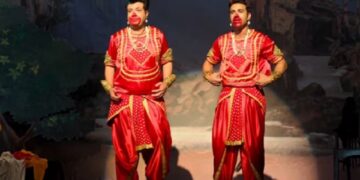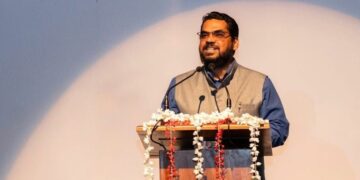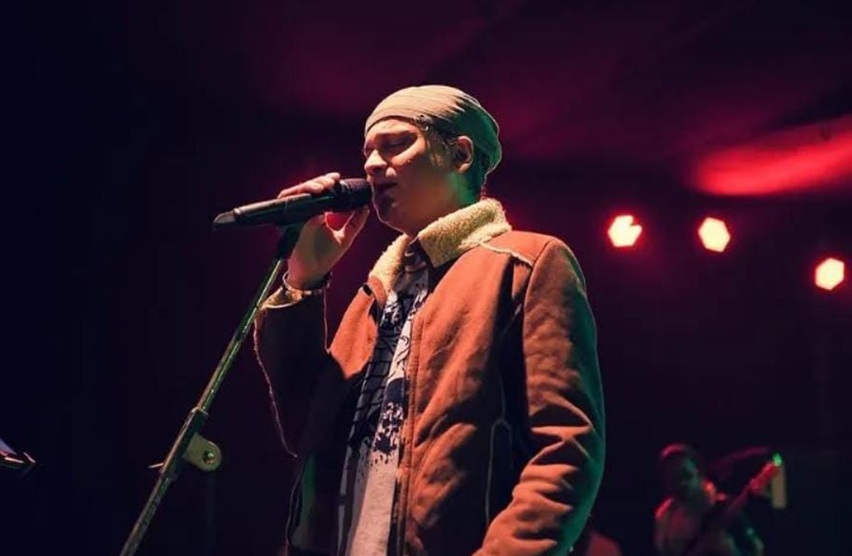On September 19, 2025, in faraway Singapore, the life of Zubeen Garg, the unchallenged youth icon of Assam and the Northeast, came to an untimely close.
The official reports confirmed drowning as the cause of his death while he was scheduled to perform at the North East India Festival, an event meant to celebrate the region’s cultural identity on a global stage.
Today, September 23, 2025, the soil of Assam embraces him for the last time at a chosen site near Dichang Resort in Sonapur, where thousands gather not merely to mourn, but to honour the heartbeat of a generation.
In his passing, the state has not just lost an artist but a voice that rose above divisions, a soul that dared to challenge orthodoxy, and a presence that reminded the youth that identity is not about exclusion, but about inclusion and courage.
The New York Times, reporting on his death, called him “a rare phenomenon who fused the rustic and the modern, folk with pop, regional idiom with global rhythms, and became a singer who refused to be confined by borders of language or land.”
It noted how he was adored for Bollywood anthems like Ya Ali, but more profoundly for his stubbornly fearless choice to sing in dozens of languages, embodying the idea that Assamese pride thrives in its openness to diversity.
The paper observed with poignancy that “the heartbeat of Assam has stopped in Singapore, but it will echo forever across rivers and hills.”
In those lines, the grief of a region became global, making it clear that Zubeen’s voice carried further than anyone imagined.
Among the many reasons why today’s generation found in Zubeen a reflection of themselves was his unapologetic authenticity.
He never sought to be moulded by convention, nor to surrender to social diktats that demanded submission.
At a time when militant outfits in Assam imposed cultural censorship—banning Hindi or Bengali songs in Assamese gatherings—it was Zubeen who refused to yield.
Standing on stage, he would thunder, “Who the hell are you? I don’t care,” and then break into song, dismantling fear with music.
That defiance turned him into a symbol of resistance against communal narrowness.
To a generation constantly negotiating between tradition and modernity, his example whispered that one could be both rooted and fearless, both Assamese and cosmopolitan, without contradiction.
Today the same ULFA organisation paid its tribute to Zubeen in sparkling terms.
It was this same spirit that propelled him into movements larger than music.
During the several protests that shook Assam, Zubeen was not merely a participant; he was a lodestar. Unlike professional politicians, he never spoke the language of calculation.
His words were raw, his emotions unfiltered, his stand unwavering. He mobilized people not by strategy but by sincerity, calling for unity across religion, caste, or tribe.
He sang, marched, and held the microphone not as a celebrity but as a fellow citizen.
A series of prayers in several mosques and churches in Assam is an eloquent testimony to his popularity.
That is why, when the youth of Assam today chant his name, they do not remember only the melody of his songs but also the courage of his convictions.
But Zubeen’s role in binding diversity went beyond politics.
Through the Kalaguru Artiste Foundation, he consistently raised funds for disaster relief, whether during the recurring floods that devastate Assam or for those left homeless in smaller, forgotten corners of society.
His home became a refuge for Covid patients, and his football matches turned into carnivals of youthful energy where religion and caste dissolved into laughter and play.
His philosophy—“Moi manuh, moi mukto,” or “I am human, I am free”—was not rhetoric but practice. He often repeated, “I don’t have any caste, religion or god,” an audacious statement in a society still scarred by such divides.
For the young who struggle daily against labels, his words were an emancipation.
They saw in him the courage to declare freedom from invisible prisons and the audacity to live without apology.
Leaders across India and beyond responded to his death with grief, but it was the youth who felt the void most intensely.
Assam’s Cabinet Minister Ashok Singhal remarked that “Assam has lost not only a voice but a heartbeat.”
Condolences flowed in from Bhutan, Bangladesh, and Nepal, with dignitaries traveling to Sonapur to pay their respects, an extraordinary testament to the reach of an artist who sang not for governments but for people.
Union leaders called him “a magical voice and a versatile personality,” but perhaps the truest tribute lies in the uncoordinated chorus of ordinary young people who today hum his songs in villages and cities, whispering them as if they were mantras of resilience.
Why did the youth so deeply identify with Zubeen? Perhaps because he mirrored their contradictions.
He was both rebel and romantic, both global and local, both artist and agitator. He sang of love, but also of resistance.
He could charm a Bollywood audience with a soft melody and, in the same breath, stand before an Assamese crowd with fire in his voice against injustice.
He did not live as a perfect icon but as a flawed human, with mistakes and controversies, and that made him relatable.
He showed that greatness lies not in spotless purity but in refusing to stop striving. To a generation that mistrusts polished façades, Zubeen was refreshing because he wore his scars openly.
His life also carried an implicit challenge: to not remain passive. Zubeen never allowed himself to be just an entertainer.
His art was a vehicle for identity, his stage a platform for dialogue, his fame a responsibility. In an age where many youth icons retreat into comfort, Zubeen insisted on standing with the people even when it risked his career.
ALSO READ: Assam bids tearful farewell to Zubeen Garg as final journey begins
He made it fashionable to be fearless. This is why, even in his death, he leaves behind not silence but a call—a call to the young to pick up their own instruments, their own placards, their own voices, and carry forward the song of unity.
As the funeral flames rise in Sonapur today, and as the scent of incense mingles with the heavy air of grief, Assam will not only remember the man but inherit his unfinished dream.
Zubeen Garg’s music will continue to play in tea gardens and universities, in crowded markets and lonely riversides, but his greatest melody will be the idea he embodied—that no wall of religion, language, or caste is strong enough to silence a heart that sings for humanity.
For the youth who stand bewildered at crossroads, his life suggests a path: to create without fear, to rebel without hatred, to embrace without condition, and to live as if each day is a chance to dissolve divides.
The idea that must live on is not simply Zubeen’s music but his audacity to declare, “I am human, I am free.”
That declaration, if carried forward, can become the anthem of a new generation, a generation that dares to be fearless, inclusive, and unbroken.
And perhaps the best tribute the young can offer him is this—to stop waiting for a hero, and instead, to become one.















